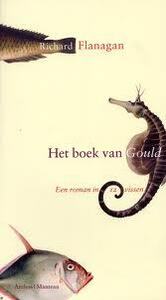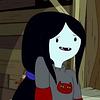Take a photo of a barcode or cover
challenging
mysterious
medium-paced
Plot or Character Driven:
A mix
Strong character development:
Yes
Loveable characters:
Complicated
Diverse cast of characters:
No
Flaws of characters a main focus:
Yes
This book is an incredible act of creation. An alternative world through the narrative of a man whose relationship to what we regard as reality is unlike any other I have encountered. In this telling, reality is mutable as an act of creation of a future and as an transformation of a past. Whilst I at times marvelled at the use of certain words, the rich vocabulary and the amusing and incisive turns of phrase, this is also a book in which to immerse or closely study.
The audio presentation is fabulous, with well-presented different voices and accents giving greater depth to the author's often wondrous if deliberately somewhat two-dimensional characters. In this, the strength of the audiobook format is superbly served.
The audio presentation is fabulous, with well-presented different voices and accents giving greater depth to the author's often wondrous if deliberately somewhat two-dimensional characters. In this, the strength of the audiobook format is superbly served.
Okay, I don't know. The book started of fine. Liked the writing and was pretty intrigued in the story and the characters.
But with the second chapter the writing changed, the narrator changed and the story. And I got lost.
For most of the book I was confused and didn't really understand what it wanted to tell me. The writing was deranged and confused and sometimes just didn't make any sense.
Now I finished the book a week ago and think it might have been a reflection on the mental state of the narrator. But it was just too much for my liking, a little overdone.
Also the narrator changed his perspective and sometimes spoke of himself in the 3rd person, to distance himself from what was going on. Something I normally enjoy, but here it just added to the confused narration.
Another thing that confused me was the extreme meta levels of this book (can you say that?). It is based on a real historic person, but everything is changed. And then the story in the book keeps questioning itself. And at the end there is another level that questions everything you just read and believed. Too many levels.
It's one of those books that might be enjoyable to study in detail, but it wasn't fun to read.
But with the second chapter the writing changed, the narrator changed and the story. And I got lost.
For most of the book I was confused and didn't really understand what it wanted to tell me. The writing was deranged and confused and sometimes just didn't make any sense.
Now I finished the book a week ago and think it might have been a reflection on the mental state of the narrator. But it was just too much for my liking, a little overdone.
Also the narrator changed his perspective and sometimes spoke of himself in the 3rd person, to distance himself from what was going on. Something I normally enjoy, but here it just added to the confused narration.
Another thing that confused me was the extreme meta levels of this book (can you say that?). It is based on a real historic person, but everything is changed. And then the story in the book keeps questioning itself. And at the end there is another level that questions everything you just read and believed. Too many levels.
It's one of those books that might be enjoyable to study in detail, but it wasn't fun to read.
‘I am William Buelow Gould - convicted murderer, painter & numerous other unimportant things.’
Some novels are difficult to categorise: labels slide off them, descriptors are inadequate. And, if plots are vague or slippery and characters surreal, then what can I tell you? My advice is to take a risk: dive into the story, meet Billy Gould.
But first, a bit of history. Sarah Island in Macquarie Harbour on the remote west coast of Van Diemen’s Land (now Tasmania) was a tiny penal settlement, established in 1821. In 1827, William Buelow Gould was transported to Van Diemen’s Land for theft. In 1829, William Buelow Gould was sentenced to three years on Sarah Island for forging a banknote. William Buelow Gould was granted a certificate of freedom in 1835. He was a noted artist, and Gould’s ‘Sketchbook of Fishes’ was produced around 1832. If you were to travel to Sarah Island today, there are few signs of its use as a penal settlement. The penal settlement was closed in 1833, and William Buelow Gould and the other prisoners were transferred to Port Arthur.
And so we move from bare bones of fact into some wonderfully florid fiction. From now on, William Buelow Gould will become Billy Gould. In this novel, according to Billy, there was a scheme to transform this tiny, remote island into a city state, a trading centre, a new Venice, a cultural hub to rival European cities.
And Billy’s place in this? The Surgeon on Sarah Island had scientific aspirations. He thought that presenting paintings of the different species of fish around Van Diemen’s Land would impress the London elite. Billy, as a forger, was just the man for the job. Billy starts hesitantly
‘A fish, on the other hand, is not an easy item to forge.’
but then becomes obsessed.
Painting fish gives Billy opportunities not available to his fellow prisoners and enables him to mix with some of the officials. Importantly, he has access to better food. There are other elements to remind us of the purpose of the penal colony, of the cruel and sometimes unusual punishments. There’s humour, perhaps, in the prison surgeon being eaten by his giant pig Castlereagh but not in some of the other occurrences including the murder of Indigenous peoples.
What can else I tell you about this novel? One day I intend to reread it. The real William Buelow Gould was a rascal, albeit a talented one. I’ve admired a number of William Buelow Gould’s paintings and I am aware that his original sketchbook of fishes is held by the Allport Library and Museum of Fine Arts, in the State Library of Tasmania. Unfortunately, because of its age and condition it is not available for general access. There is a digital version is available on the internet.
‘I am William Buelow Gould, & my name is a song that will be sung.’
Jennifer Cameron-Smith
Some novels are difficult to categorise: labels slide off them, descriptors are inadequate. And, if plots are vague or slippery and characters surreal, then what can I tell you? My advice is to take a risk: dive into the story, meet Billy Gould.
But first, a bit of history. Sarah Island in Macquarie Harbour on the remote west coast of Van Diemen’s Land (now Tasmania) was a tiny penal settlement, established in 1821. In 1827, William Buelow Gould was transported to Van Diemen’s Land for theft. In 1829, William Buelow Gould was sentenced to three years on Sarah Island for forging a banknote. William Buelow Gould was granted a certificate of freedom in 1835. He was a noted artist, and Gould’s ‘Sketchbook of Fishes’ was produced around 1832. If you were to travel to Sarah Island today, there are few signs of its use as a penal settlement. The penal settlement was closed in 1833, and William Buelow Gould and the other prisoners were transferred to Port Arthur.
And so we move from bare bones of fact into some wonderfully florid fiction. From now on, William Buelow Gould will become Billy Gould. In this novel, according to Billy, there was a scheme to transform this tiny, remote island into a city state, a trading centre, a new Venice, a cultural hub to rival European cities.
And Billy’s place in this? The Surgeon on Sarah Island had scientific aspirations. He thought that presenting paintings of the different species of fish around Van Diemen’s Land would impress the London elite. Billy, as a forger, was just the man for the job. Billy starts hesitantly
‘A fish, on the other hand, is not an easy item to forge.’
but then becomes obsessed.
Painting fish gives Billy opportunities not available to his fellow prisoners and enables him to mix with some of the officials. Importantly, he has access to better food. There are other elements to remind us of the purpose of the penal colony, of the cruel and sometimes unusual punishments. There’s humour, perhaps, in the prison surgeon being eaten by his giant pig Castlereagh but not in some of the other occurrences including the murder of Indigenous peoples.
What can else I tell you about this novel? One day I intend to reread it. The real William Buelow Gould was a rascal, albeit a talented one. I’ve admired a number of William Buelow Gould’s paintings and I am aware that his original sketchbook of fishes is held by the Allport Library and Museum of Fine Arts, in the State Library of Tasmania. Unfortunately, because of its age and condition it is not available for general access. There is a digital version is available on the internet.
‘I am William Buelow Gould, & my name is a song that will be sung.’
Jennifer Cameron-Smith
Having read and enjoyed Flanagan's Narrow Road, I thought I'd try this one based on the history of Tasmania (when it was Van Diemen's Land, a British penal colony), not least because it spoke of art and fish. But though the concept was interesting, the writing was almost as crazed as the narrator, and though I finished it, I found the story too scattered and random.
challenging
dark
emotional
reflective
so many mixed feelings about this book. some parts were so wonderfully executed and i couldn't stop reading. other parts really, really annoyed me because they seemed to drag on forever (especially the middle).
i was also frustrated with the amount of (for a lack of a better word) "fancy" words. maybe it's because english isn't my first language but at a certain point, when i have to look up almost every other word, i find that it becomes really excessive. pretentious writing just for the sake of being pretentious.
i didn't care for most of the characters. the story didn't engage me for the most part. i don't know who i would ever recommend this book to. i can't even tell if i liked it.
i was also frustrated with the amount of (for a lack of a better word) "fancy" words. maybe it's because english isn't my first language but at a certain point, when i have to look up almost every other word, i find that it becomes really excessive. pretentious writing just for the sake of being pretentious.
i didn't care for most of the characters. the story didn't engage me for the most part. i don't know who i would ever recommend this book to. i can't even tell if i liked it.
William Buelow Gould; invader of Australia, liar, murderer, forger, fantasist, condemned to live in the most brutal penal colony in the British Empire, and there ordered to paint a book of fish
In flashbacks and flashforwards, we learn that Gould is narrating his tale as he awaits execution, confined to a fetid cell that fills with water as the tide comes in every day. Gould's Book of Fish is a wondrous meditation on the intersection of art, history and nature combined with a surreal examination of the consequences of British colonialism.
Definitely an off the beat and track book for myself but I am so glad I gave this novel a chance-it is a classic and one that will forever have a home upon my shelves.
Readalikes: Ulysses (James Joyce), The Art of Fielding (Chad Harbach)
In flashbacks and flashforwards, we learn that Gould is narrating his tale as he awaits execution, confined to a fetid cell that fills with water as the tide comes in every day. Gould's Book of Fish is a wondrous meditation on the intersection of art, history and nature combined with a surreal examination of the consequences of British colonialism.
Definitely an off the beat and track book for myself but I am so glad I gave this novel a chance-it is a classic and one that will forever have a home upon my shelves.
Readalikes: Ulysses (James Joyce), The Art of Fielding (Chad Harbach)
Wat een fascinerend boek! Een fantasievol en fantastisch verhaal in een bijzondere uitgave met tekst in vele pasteltinten. Ook de taal is apart. Flanagan heeft geen doorsnee vocabulair en in het Engels is het dan ook best pittig. We bespraken het tijdens een picknick aan de Kralingse Plas, ook leuk!
I say "borrowed" - I borrowed my sister's copy, lost it , bought it secondhand, now that I have finished I will "return" it to her.
This is hard for me to review - parts of it I loved, and parts of it I didn't like at all. Overall it is very, very good, but much of the middle is not actually enjoyable. Too much repetitive suffering, and a bit much point-scoring about Tasmania's dark history, but much of it brilliant. The strange, involuted structure is great, I think, so is it my fault I was frustrated with the epilogue?
This is hard for me to review - parts of it I loved, and parts of it I didn't like at all. Overall it is very, very good, but much of the middle is not actually enjoyable. Too much repetitive suffering, and a bit much point-scoring about Tasmania's dark history, but much of it brilliant. The strange, involuted structure is great, I think, so is it my fault I was frustrated with the epilogue?
adventurous
dark
mysterious
reflective
medium-paced
Plot or Character Driven:
A mix
Strong character development:
Complicated
Loveable characters:
Complicated
Diverse cast of characters:
Yes
Flaws of characters a main focus:
Complicated
Something tells me I need to read this again sometime to fully comprehend what in God’s name went on 😂 the twist at the end though 👌🏼





